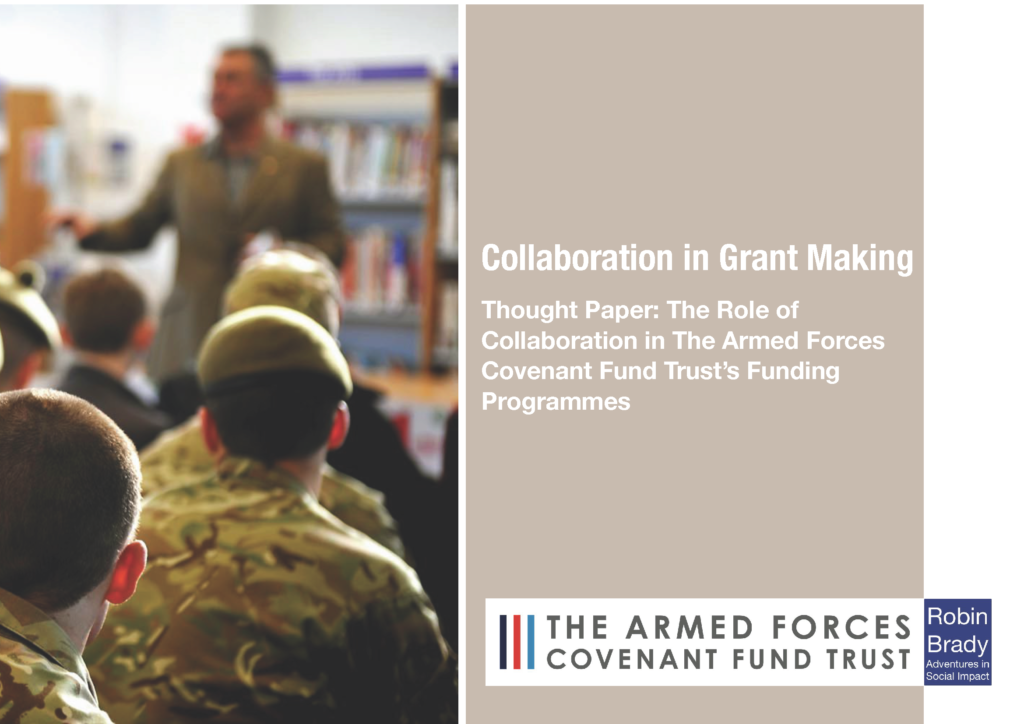Collaboration in Grant Making: your views sought
The Armed Forces Covenant Fund Trust (AFCT) has published a thought paper by an independent consultancy, that explores ways in which the AFCT has encouraged collaboration, and asks some key questions for the future.
Five key features for collaboration
The paper identifies five key areas featured in collaborations that have been supported by the Trust.
- Leadership engagement, with leaders at all levels.
- The observation that issue or cause-based collaboration is better or more effective than funding-based collaboration.
- Relationship building, leading to trust building, is crucial for effective collaboration.
- Planning is also important, as is the principle that all partners are equal, with mechanisms developed to enable parity for organisations of different size.
Questions for the future
Through exploring questions on collaboration, the paper has raised some interesting questions for the future.
- Should collaboration/partnership working be a core funding tool in a formal way?
- Should collaboration only ever be ‘encouraged’ rather than set as a condition of grant?
- When is collaboration not a good idea?
- Is collaboration always about peer mentoring?
- How can collaboration/partnership working be encouraged at a local level among micro-organisations (without larger household names getting involved)?
- How is collaboration / partnership working sustainable without funding attached to it?
- Should AFCT establish a community of practice to promote greater collaboration and shared development of smaller organisations?
- Should the six Strategic Partners (who provide support to organisations that have received a grant through the Positive Pathways programme), or a wider group of Armed Forces charities, establish a community of practice or learning network, to promote greater collaboration and shared development of smaller organisations?
